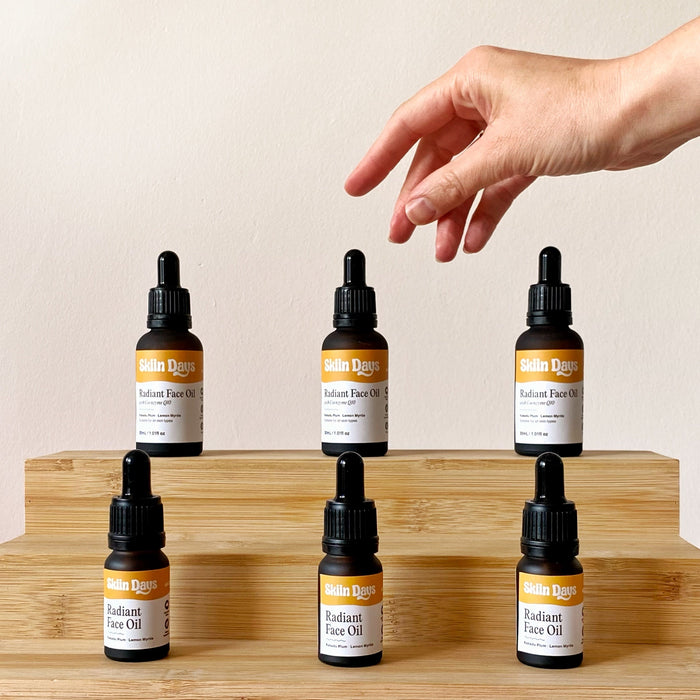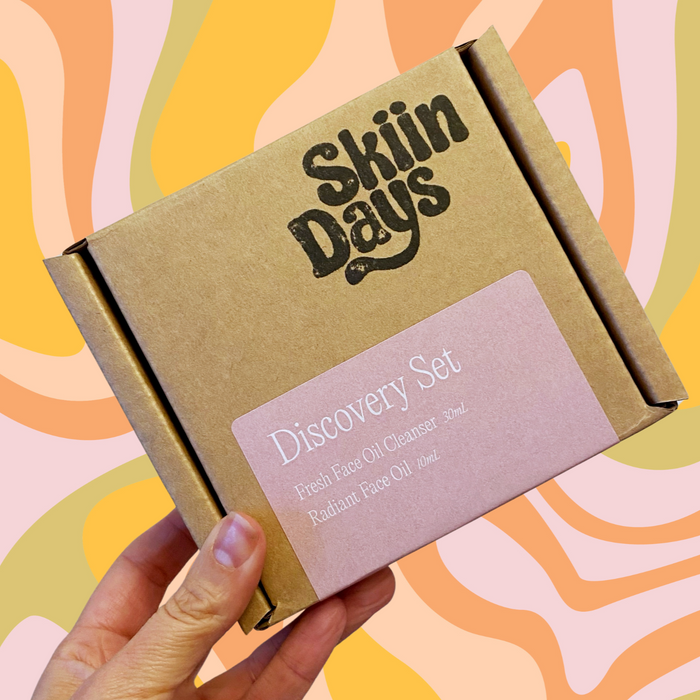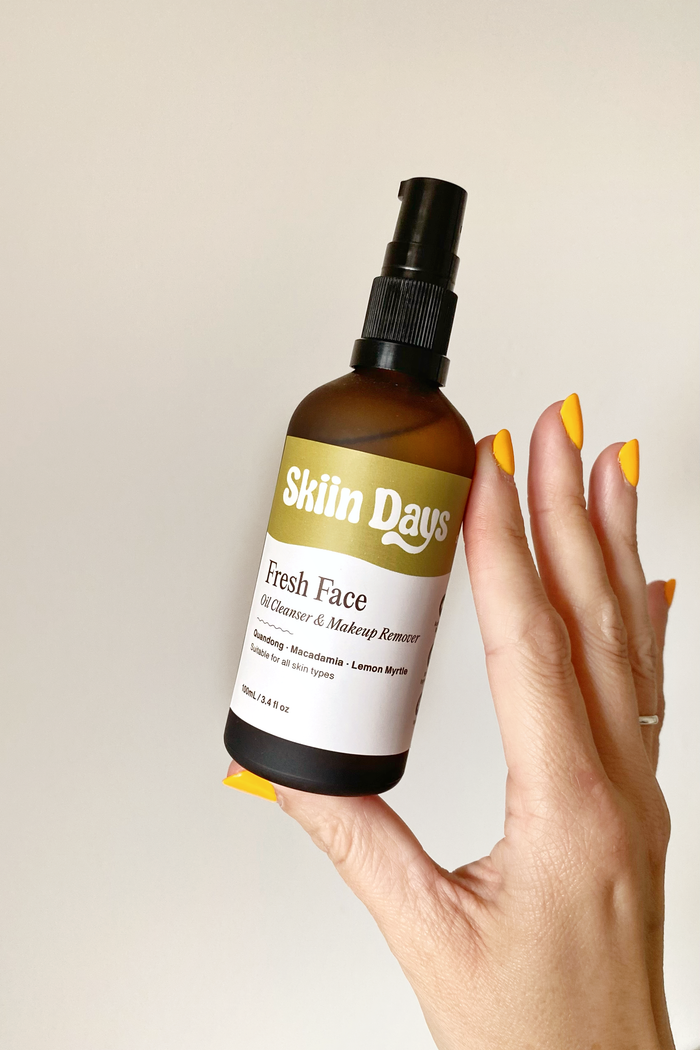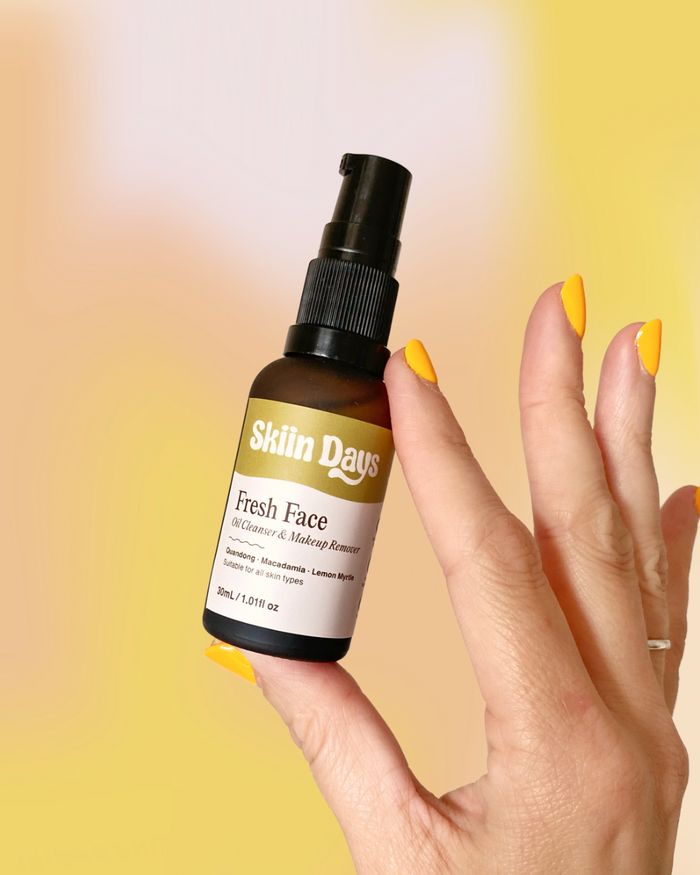

Dry Skin vs. Dehydrated Skin - Spot the Difference and Save the Day!
Dry skin vs Dehydrated skin
Skin SOS: Dry Skin vs. Dehydrated Skin - Spot the Difference and Save the Day!
You’ve probably heard of both dry and dehydrated skin? Maybe you’ve even wondered if they’re the same thing? Or if one always comes with the other?
The thing is loves, dry skin and dehydrated skin are two terms that are often used interchangeably, but they are actually quite different.
Understanding the difference between the two can help you choose the right products and treatments for your skin.
Dry skin is a skin type that lacks oil
Dehydrated skin is a skin condition that lacks water.
Dry Skin
Dry skin is typically characterized by a lack of natural oils, which can lead to flakiness, roughness, and sometimes even itching or cracking. Dry skin is a result of genetics, hormonal changes, or environmental factors like cold weather or harsh soaps.
Think of it this way: dry skin is like a desert, while dehydrated skin is like a wilted flower.
Dehydrated Skin
Dehydrated skin, on the other hand, is a result of a lack of water in the skin. It can occur in any skin type, even oily skin! Yeppers, that’s right! Dehydrated skin can be caused by things like not drinking enough water, overexposure to the sun, air conditioning or heating, and using products with alcohol or other drying ingredients.
So, how can you tell if your skin is dry or dehydrated?
One way is to pay attention to how your skin feels after cleansing. If your skin feels tight and uncomfortable, it’s likely dehydrated. If it feels rough and flaky, it’s probably dry.
Treating Dry Skin
To treat dry skin, you’ll want to look for products that provide moisture and nourishment to the skin, such as creams and oils. Look for products that have shea butter, jojoba oil, vitamin e, squalane and other oils and butters.
Treating Dehydrated Skin
For dehydrated skin, focus on products that help to hydrate and retain water in the skin, like toners, serums and other water based products. Keep an eye on your ingredients list for hyaluronic acid, glycerine, aloe vera, ceramides and niacinamide
To sum things up: dry skin and dehydrated skin are two distinct skin concerns that require different treatments. Knowing the difference can help you better care for your skin and achieve a healthy, glowing complexion.
Lucy (she/her)
Skiin Days Founder and your Friendly Neighbourhood Skin Specialist
Your best skin days are yet to come
Pro Age Natural Skincare (that really works!)

Disclaimer
All content within this blog is provided for general information only, and should not be treated as a substitute for the medical advice of your own doctor or any other health care professional. Skiin Days is not responsible or liable for any diagnosis made by a user based on the content of this site. Always consult your own GP if you're in any way concerned about your health
0 comments
Want to learn more?
By signing up for the mailing list, you'll receive articles (just like this one!), tips, and tricks delivered straight to your inbox.
Skin Days Glow Hub
-
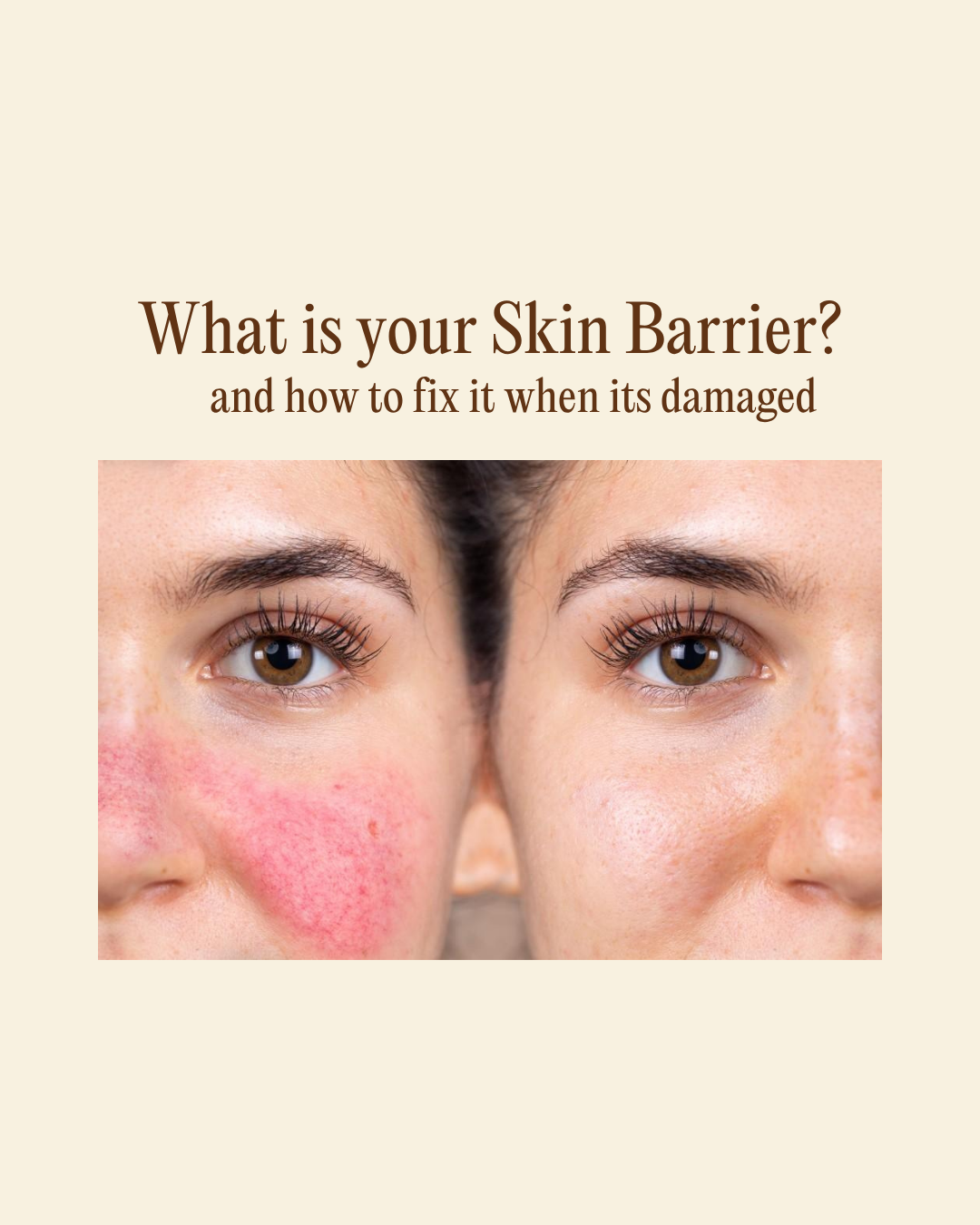
What Is Your Skin Barrier (and how to fix it when it's damaged) 🦠
If your skin has been feeling tight, reactive, red, or just off lately, there’s a good chance your skin barrier is calling for help. You’ve probably heard the term “barrier repair” floating around on social media, but what does it...
-
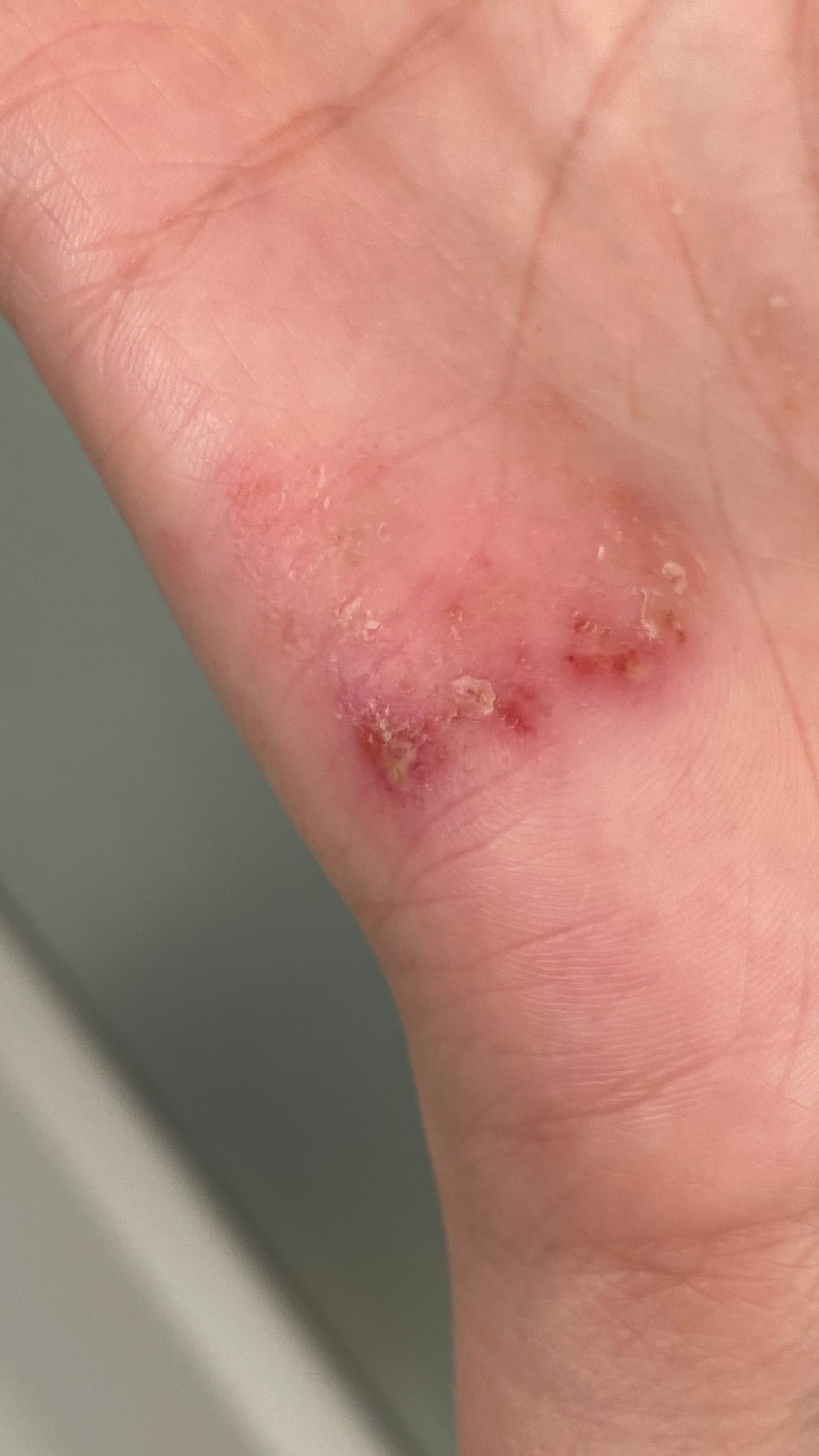
The Balm I Made for My Eczema (And Why You Might Want to Try It Too)
A few days ago, I posted something a little different on Instagram.
No fancy filters. Just me, mid-eczema flare, applying a thick, yellow balm I’d made myself — a blend of zinc oxide and calendula (along with lovely nourishing plant oils and butters) I’ve been quietly testing behind the scenes.
-
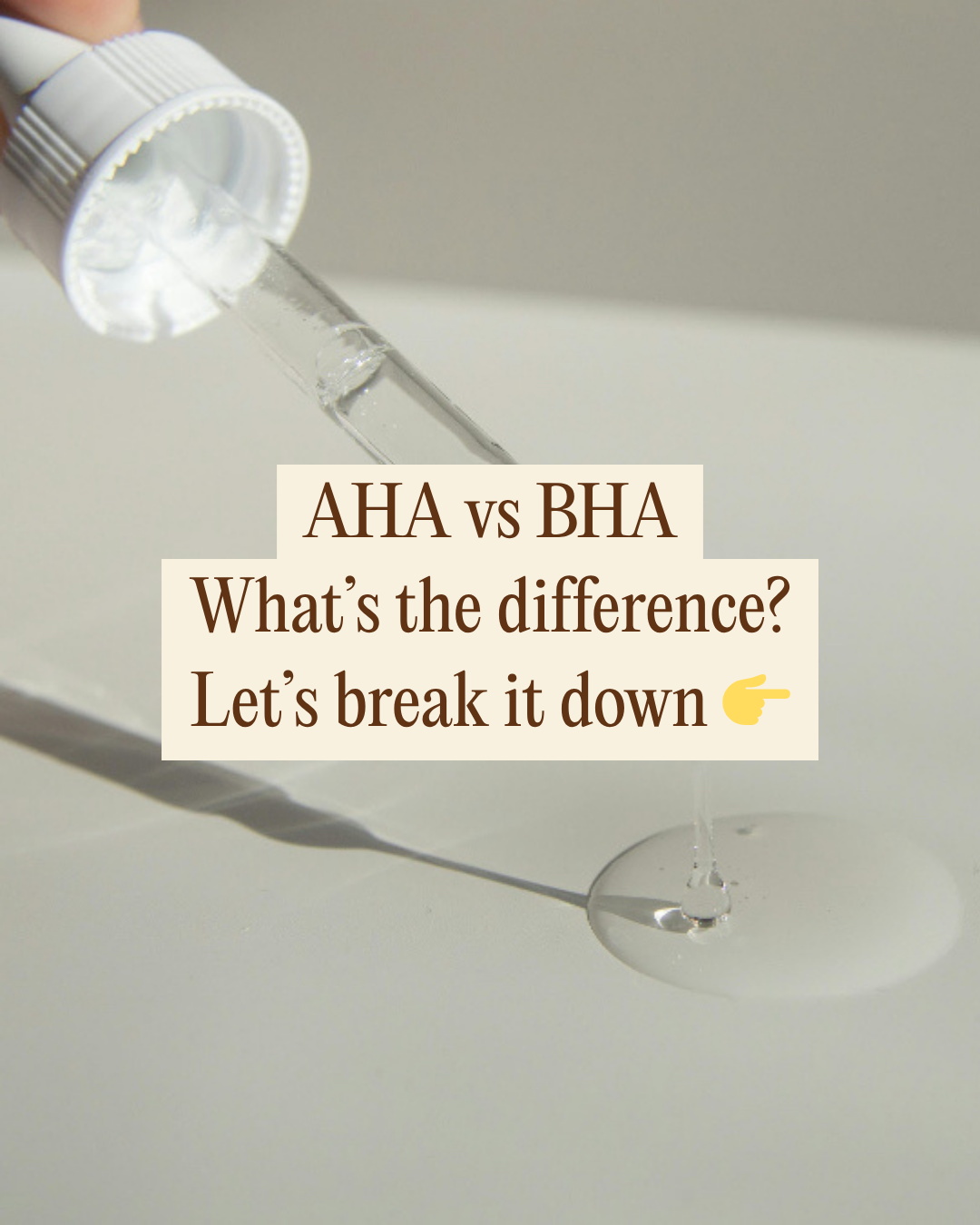
AHAs vs BHAs: What’s the Difference and Which One Should You Use?
AHAs (Alpha Hydroxy Acids) are water-soluble acids made from sugary fruits or milk. They work by dissolving the bonds that hold dull, dead skin cells on the surface. This helps reveal smoother, more even-toned skin underneath.

